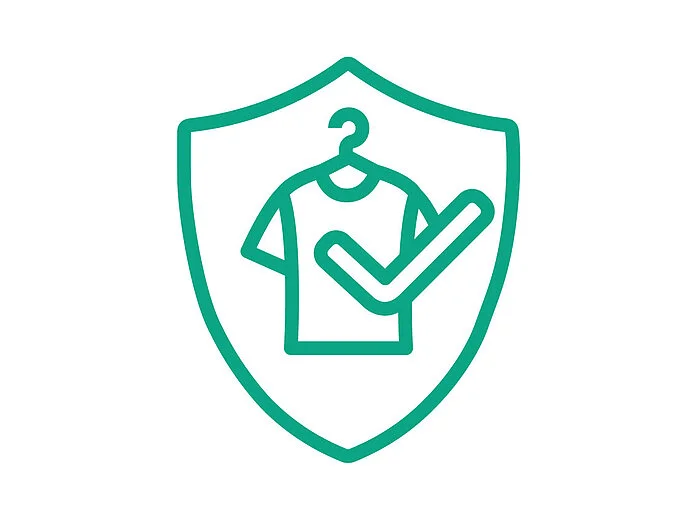
Do you want to check the validity of the certified product? Simply scan the QR code on your label or enter the certificate number in the OEKO-TEX® Label Check. Would you like to know how to use an OEKO-TEX® label? Check our Labelling Guide.
Go to the Label Check
For effective protection: 4 product classes
The OEKO-TEX® STANDARD 100 laboratory tests for harmful substances are based on the intended use of the textiles and materials. Stricter human ecology requirements must be met, the more intensive the skin contact and the more sensitive the skin is.
Product Class 1
Products for babies and children up to 3 years, such as diapers. This product class has the strictest requirements and limit values.
Product Class 2
Products with direct skin contact, such as bed linens.
Product Class 3
Products without direct skin contact, such as jackets.
Product Class 4
Home textiles and other decoration materials, such as curtains.
Are you looking for certified partners or want to check which brands already have OEKO-TEX® labelled products? The OEKO-TEX® Buying Guide is an online directory for certified products, manufacturers and brands. Use this network of brands and suppliers along the textile and leather chain to find certified articles or to make new business contacts!
Do you have questions about our certifications and services, the way we test, legal requirements and norms? Go to our FAQ page or contact us per email.
Check our FAQs
Would you like to obtain an OEKO-TEX® STANDARD 100 certification? Are you interested in the certification process and the requirements? Visit our download area to discover the full documentation or apply for the certification.
This is your path to certification